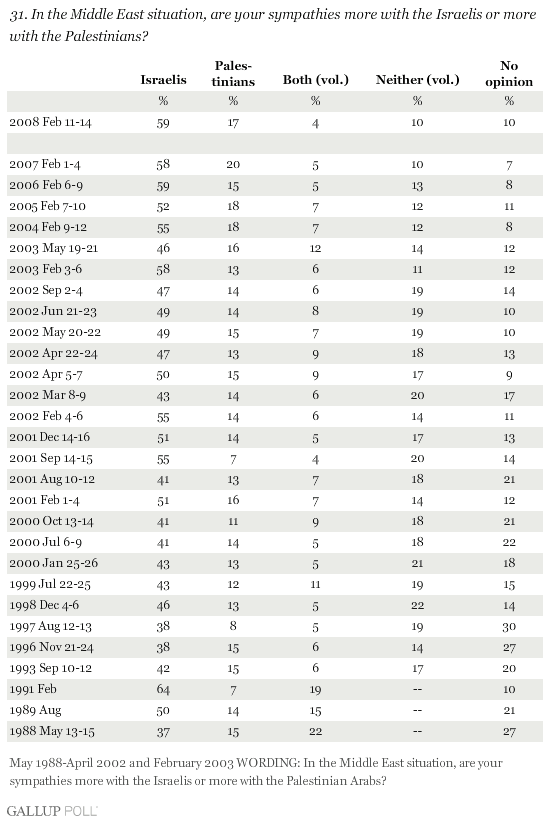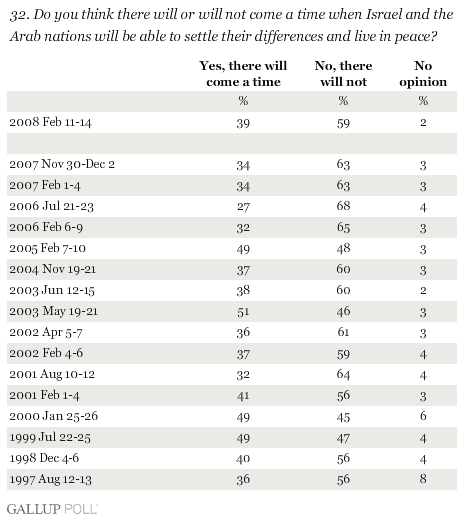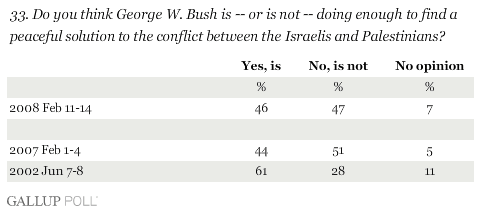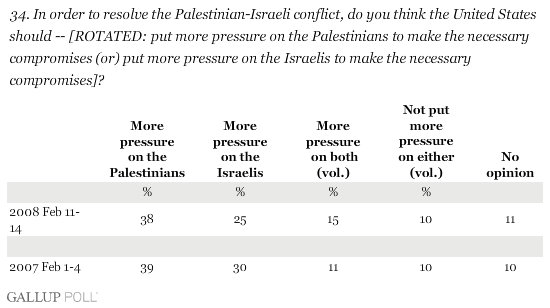PRINCETON, NJ -- Only 46% of Americans believe President Bush is "doing enough" to help bring about a peaceful solution to the Israeli-Palestinian conflict, a figure similar to a year ago.
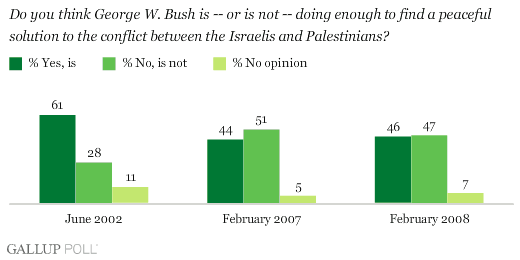
The Bush administration has arguably done more in the past year to further a Palestinian-Israeli peace accord than it did in the previous six years. It sponsored a peace summit in Annapolis, Md., last fall, and has followed up with several high-level visits to Israel and the Palestinian territories. Vice President Dick Cheney was in Israel and the Palestinian territories earlier this week, meeting with leaders, reiterating U.S. support for a two-state solution, and offering verbal encouragement that hard work and "painful concessions" at the negotiating table can pay off.
Yet as of Gallup's annual World Affairs survey, updated Feb. 11-14, Bush appeared to be getting little to no credit for these efforts with the U.S. public. As noted, there has been no increase since last February in Americans' belief that the administration is doing enough to bring about peace. At that time, 44% held this view.
Americans are slightly more upbeat than they were in February and November 2007 about the possibility that peace will eventually be achieved between Israel and the Arab nations, but the 39% currently optimistic (up from 34% in 2007) is still well below earlier high points on this measure. A majority of Americans (59%) believe Israel and her Arab neighbors will never "settle their differences and live in peace."
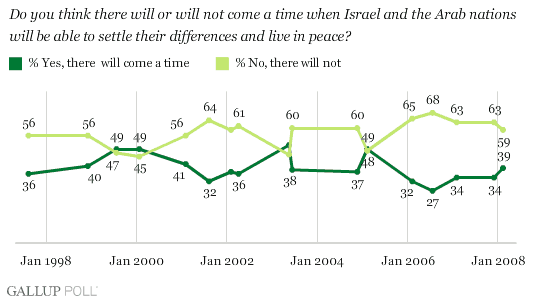
More generally, 59% of Americans sympathize more with the Israelis in the Middle East situation; only 17% say their sympathies lie more with the Palestinians. ÆéûÜǨû§found a similar breakdown in each of the past two years.
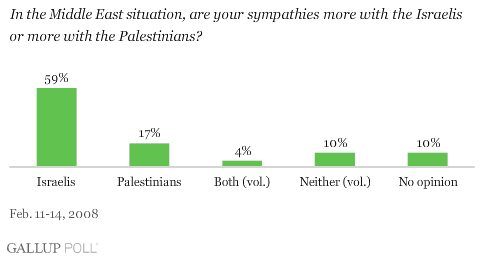
In the same vein, Americans are more likely to want the United States to put greater pressure on the Palestinians than on the Israelis to "make the necessary compromises" to end the conflict. However, with only 38% calling for more pressure on the Palestinians and 25% calling for more pressure on the Israelis, both of these attitudes are minority points of view. An additional 15% of Americans think the United States should put more pressure on both sides; 10% say it should not increase the pressure on either side; and 11% have no opinion.
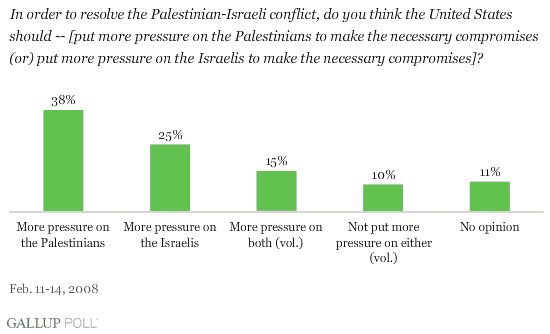
Bottom Line
Without a major breakthrough in the Palestinian-Israeli conflict, Americans seem set in their belief that the Bush administration is doing less than it could be doing to broker a Middle East peace agreement. They are as negative on this question today as they were a year ago -- well before Bush and his diplomatic team rolled up their sleeves on the issue -- and most are pessimistic about the long-term chances for peace.
To the extent the United States does get more involved, it is unclear what Americans would want their government to do. While the plurality say the United States should increase pressure on the Palestinians (38%), this is not substantially higher than the 25% wanting more pressure on Israel. Another 25% favor no change in the relative pressure being exerted, including 15% saying more pressure should be exerted on both sides, and 10% saying the United States should not put additional pressure on either.
Survey Methods
Results are based on telephone interviews with 1,007 national adults, aged 18 and older, conducted Feb. 11-14, 2008. For results based on the total sample of national adults, one can say with 95% confidence that the maximum margin of sampling error is ôÝ3 percentage points.
Interviews are conducted with respondents on land-line telephones (for respondents with a land-line telephone) and cellular phones (for respondents who are cell-phone only).
In addition to sampling error, question wording and practical difficulties in conducting surveys can introduce error or bias into the findings of public opinion polls.
